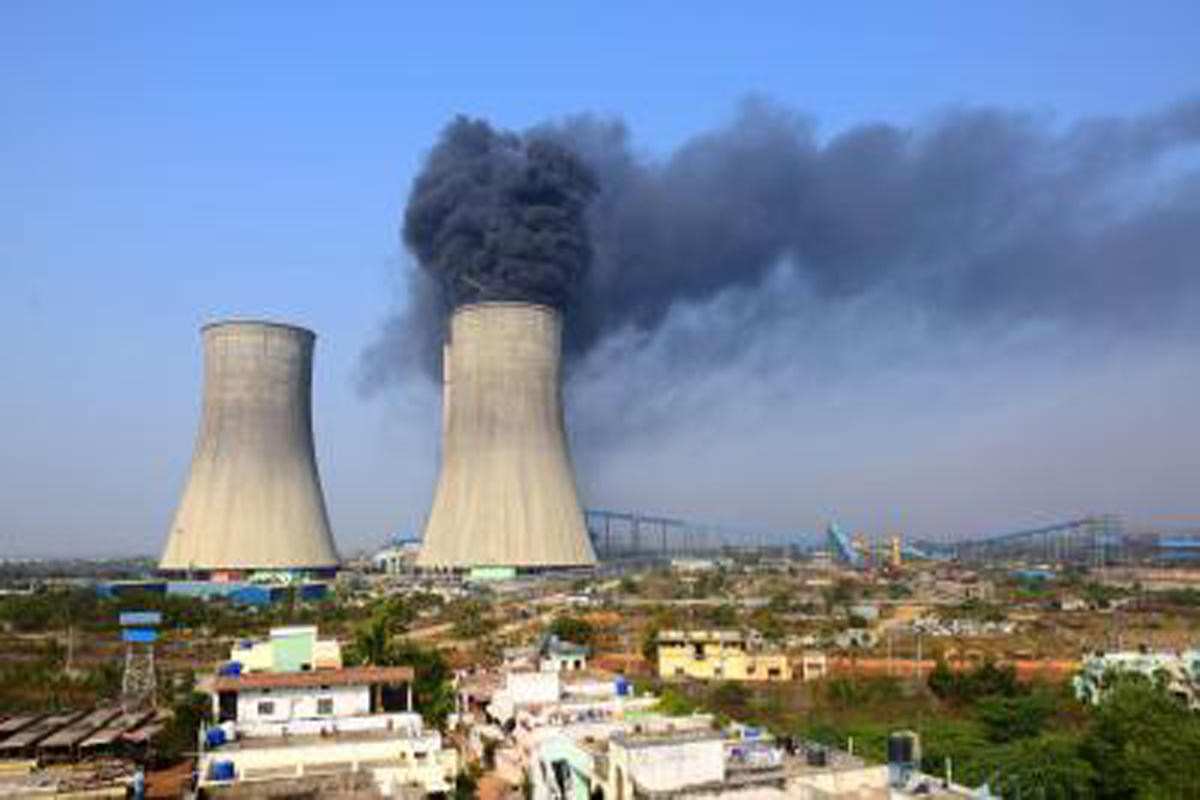Renewed protests against ‘Russian law’ in Georgia
Tens of thousands of people protested again in the Georgian capital Tbilisi against a planned law to control foreign influence.

Photo: IANS
In a landmark move, the European Union (EU) has approved a bill which also includes the much-anticipated Carbon Border Adjustment Mechanism (CBAM). CBAM is a carbon border tax on imports entering the EU from other countries.
The idea behind imposing such a tax is to supposedly level the playing field for various industries and ensure that nonpolluting industries inside the EU are not at a competitive disadvantage vis-à-vis polluting industries located outside of EU, and to also prevent carbon leakage by ensuring that industries within the EU do not relocate to other jurisdictions which do not have stringent carbon taxes that need to be paid.
The CBAM is expected to be implemented from 2026 onwards, much to the dissatisfaction of developing countries. It is coming at a time when the United States (US) has already implemented its Inflation Reduction Act (IRA) which provides around $370 billion in taxbreaks, subsidies, manufacturing conditions and incentives to the clean energy sector.
Advertisement
The IRA, instead of taking a top-down approach like the EU CBAM, has, nonetheless, ended up achieving the similar outcomes which the EU CBAM is expected to do viz. wean away investments in clean energy manufacturing to the U.S. It has been criticized by the leading EU economies like France and Germany for spoiling the level-playing field in the clean energy sector through a supposedly protectionist move.
With the transatlantic alliance riven by such tensions and with the field of climate action vulnerable to increasing instances of trade competition, it is worth assessing the future of the principles underlying the global climate regime and cooperation. Here, the following fundamental arguments become significant: First, while much debate has already taken place on the unravelling of the global liberal order in the political domain, the instrumentality of climate policy as an accelerator of such changes is now also coming to the fore.
Measures like the IRA and the CBAM ~ coming from liberal economies ~ represent, at the outset, a return to heavy government intervention in the domain of the economy. Both the policies may facilitate such intervention through different policies ~ the IRA through government intervention favouring one industry over the other and creating skewed market outcomes, and the CBAM through an outright imposition of a top-down carbon tax ~ the result is the same.
While it is too premature to predict the withering away of globalization based on these policies, yet the decisive preference to statist intervention over market-led approaches like carbon trading are clearly visible, especially among the developed countries. Second, this movement serves to highlight the growing contradiction between the broad principles of regimes like the United Nations Framework Convention on Climate Change (UNFCCC) negotiated and developed in the heydays of globalization, and the present movements which are an implicit acknowledgement of the insufficiency of market-led approaches to combating the climate crisis.
While the Paris Agreement under UNFCCC continues to develop market-led approaches under Article 6 and developing countries like India roll out carbon markets, the developed countries are increasingly encouraging state intervention in industry to achieve their climate goals.
Third, this approach of the transatlantic economies will not only have a severe economic impact on trade with developing countries, but also, at a very fundamental level, undermine the democratically negotiated principles of the UNFCCC, such as Common But Differentiated Responsibilities and Respective Capabilities (CBDR&RC) and equity, which undergird the regime of UNFCCC.
While the CBDR&RC form the bedrock of global climate governance, the post-2007 global climate regime has allowed leeway to developed countries through emphasis on voluntary mitigation targets. Through this, the developed countries have sought to shift the terms of the debate by attempting to equalize the responsibilities between themselves and large developing economies and have further dealt a blow to the idea of differentiated responsibilities through measures like IRA and CBAM.
Whether through changing the incentive structure or through a carbon tax, if the latter measures shift production away from developing countries or make their industries uncompetitive, then it would force the developing countries to institute similarly stringent green policies or emission taxes in order to not run afoul of something like the CBAM.
There is little that is objectionable about this proposition but combined with the fact that the finance and technology requirements from the developed countries have lagged, the entire resultant burden is placed on the developing economies who have not historically contributed to the public bad of climate change in the manner in which industrialized countries have, and which risks subverting the principles of CBDR and equity.
Fourth, insufficient interlinkages between trade policy and climate policy and the questionability of challenging measures like the IRA and the CBAM at the dysfunctional dispute settlement mechanism of the World Trade Organization (WTO) also exposes the unsatisfactory nature of the conditions underpinning the contemporary globalized order.
Under such conditions, various fundamental contradictions are set to deepen even more in the coming years. While developed countries may attempt to subtly obfuscate the North-South fault-line by arguing that every country has more or less equal responsibility towards the global atmospheric commons, yet, it is now, more than ever, that the construct of the global South has hardened and significantly assumed a distinctive identity in global politics.
(The writer is presently teaching at Vivekananda School of Law and Legal Studies, New Delhi, and is a member of Climate Change Expert Group at Vivekananda International Foundation, New Delhi. Views expressed are personal)
Advertisement